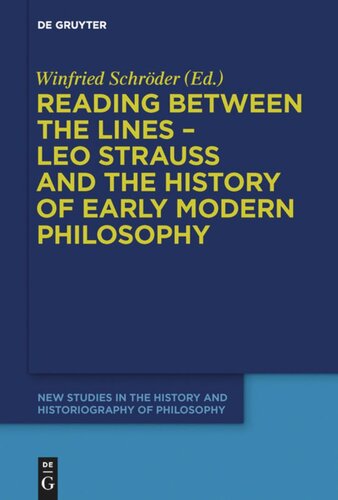

Most ebook files are in PDF format, so you can easily read them using various software such as Foxit Reader or directly on the Google Chrome browser.
Some ebook files are released by publishers in other formats such as .awz, .mobi, .epub, .fb2, etc. You may need to install specific software to read these formats on mobile/PC, such as Calibre.
Please read the tutorial at this link: https://ebookbell.com/faq
We offer FREE conversion to the popular formats you request; however, this may take some time. Therefore, right after payment, please email us, and we will try to provide the service as quickly as possible.
For some exceptional file formats or broken links (if any), please refrain from opening any disputes. Instead, email us first, and we will try to assist within a maximum of 6 hours.
EbookBell Team

4.4
42 reviewsSince its publication in 1952, Leo Strauss's Persecution and the Art of Writing has stirred considerable controversy, particularly among historians concerned with early modern philosophy. On the one hand, several scholars share his view that it would be inadequate to generally take at face value the explicit message of texts which were composed in an era in which severe sanctions were imposed on those who entertained deviating views. ‘Reading between the lines’ therefore seems to be the appropriate hermeneutical approach. On the other hand, the risks of such an interpretative maxim are more than obvious, as it might come up to an unlimited license to ascribe heterodox doctrines to early modern philosophers whose manifest teachings were in harmony with the orthodox positions of their time. The conributions to this volume both address these methodological issues and discuss paradigmatic cases of authors who might indeed be candidates for a Straussian ‘reading between the lines’: Hobbes, Spinoza, and Bayle.